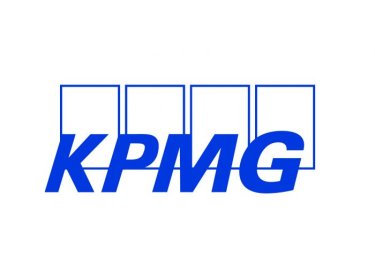 Artificial intelligence (AI) is on the front lines of business, predicting what internal and external customers want, discovering how to serve them with more rewarding and personalized experiences and aiding employees on a variety of tasks. With an expected growth of AI applications from $644 million in 2016 to $37 billion by 20251 incorporating AI applications into everyday business is on the rise and driving companies around the globe to reinvent how they operate.
Artificial intelligence (AI) is on the front lines of business, predicting what internal and external customers want, discovering how to serve them with more rewarding and personalized experiences and aiding employees on a variety of tasks. With an expected growth of AI applications from $644 million in 2016 to $37 billion by 20251 incorporating AI applications into everyday business is on the rise and driving companies around the globe to reinvent how they operate.
HR has the opportunity to play a pivotal role in the adoption of AI and stands to benefit immensely from adopting this technology. The Human Resources function interacts with each and every employee within an organization, driving a huge volume of transactions while simultaneously striving to create a more personalized, consumer-based experience at work. Not only is HR poised to lead a strategic approach to AI within the larger organization but there is also an opportunity for HR to transform itself and realize value by incorporating this technology in their daily operations.
Working with bots
Today, one of the most visible and usable AI applications is conversational agents or chatbots. Chatbots provide HR leaders with a strong opportunity to offload administrative tasks and shift process-centric work to their robotic friends.
Conversational agents are already being used to streamline and enhance operations, assist teams and deliver information to automate day-to-day tasks freeing up HR to focus on adding strategic value to the business. Imagine your organization using a learning agent in your HR Service Center or Talent Acquisition function to act as the front line to employee questions, addressing rules based inquiries and processing tasks automatically. Technology has made this a reality and shifting the burden of administration gives HR an opportunity to shift its focus to the variety of workforce challenges taking place.
AI has disrupted the traditional way of performing work, forcing organizations to think outside the box, and reinvent how they plan for their future workforce. In our experience an agile organization requires a flexible workforce – continually reconfiguring jobs, retraining workers and redeploying them into new roles where they will work alongside intelligent automation. The CHRO is the steward of these changes, translating business strategy into the talent, skill and technology mix best suited for the organization.
The process of “workforce shaping” necessitates constant role reinvention and HR is tasked as a leader within and outside of their organization. HR can start by visualizing future scenarios and deciphering capabilities they will need to integrate AI and how to secure them. Shifting administrative tasks to bots allows HR employees to take on more meaningful work maximizing retention and productivity thereby “shaping work”.
Bots have the potential to observe and capture team interactions, accumulating important institutional knowledge. As a bot learns a group’s patterns and activities, it becomes a virtual member of an HR team with a photographic memory of past discussions, action items, tasks and reminders.
Untapped potential in making decisions
Increasingly HR decisions can be supported by artificial intelligence, enabling CHROs to move beyond describing and diagnosing issues to foreseeing and taking action on future scenarios. Conversational agents can provide on-demand information and guidance, alleviating the need to scale response teams to address the increased demand for company data.
As a portal for vast amounts of information, bots enable faster ramp up and repurposing of resources between areas, reducing retraining. In using bot-generated analytics, HR can determine what really works in people management, while challenging assertions, beliefs, fads and personal prejudices. HR will be positioned as the strategic guiding force of which metrics matter. They will drive what to measure and analyze and which questions to ask to turn the generated analytics into useable information. Today, technology can tell why an employee left the company; tomorrow’s systems will predict who will leave and prescribe strategies to keep them.
Be the voice
HR leaders are in a unique position to lead the business conversation on how the world of work is taking shape in the 21st century. It requires a comprehensive knowledge of digital technology, a myriad of complex people challenges and augmentation of human capability with artificial intelligence.
AI provides both challenges and opportunities for the HR function. HR must first transform itself to exploit the full potential of integrated workforces and the new division of labor associated with AI chatbots. In rising to that challenge HR is in a position to secure a strategic role for their function and drive competitive advantage for their organizations.
[youtube https://www.youtube.com/watch?v=ftWJekj3wPI?loop=1&playlist=ftWJekj3wPI]
Additional Resources
The Future of HR
Employee Experience
1 Tractica Artificial Intelligence Market Forecasts, August 2016
![]()


Recent Comments